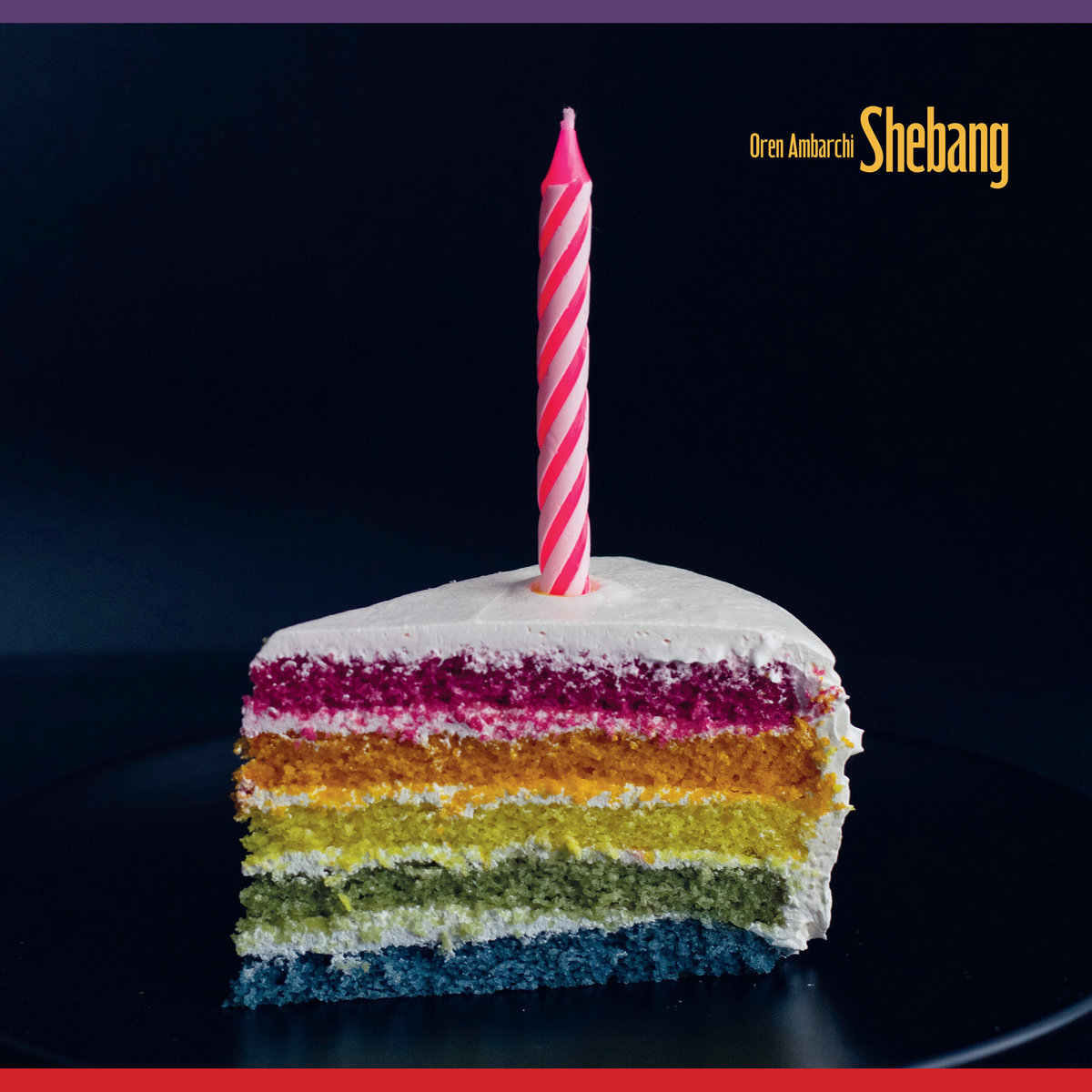 Few artists have consistently fascinated and perplexed me quite like Oren Ambarchi, as I absolutely loved his early solo guitar albums like Grapes From the Estate, then witnessed him spend the next 15 or 20 years exploring improvisatory and rhythmic-driven detours to continually intensifying and breathless acclaim. I imagine it feels somewhat akin to being a Velvet Underground fan encountering unanimous rapturous praise for their post-Cale albums–I get the appeal, but that would not be my personal go-to era if I wanted to illustrate that band's greatness. Then again, maybe my perspective on Ambarchi's evolution would shift dramatically if I just liked jazz fusion more. In any case, I can certainly understand the unusual trajectory from Oren's viewpoint, as few would pass up a chance to form a trio with Jim O'Rourke and Keiji Haino and jamming with talented friends over mutant krautrock/fusion grooves seems like a hell of a lot more fun than making slow-motion guitar magic by yourself (can't fault a guy for loving spontaneity and challenging new collaborations). Both spontaneity and inspiring guest performances abound on Shebang, as Ambarchi enlisted quite a killer (virtual) ensemble, resulting in one of my favorite of his albums in recent memory (2016's Hubris being the other serious contender).
Few artists have consistently fascinated and perplexed me quite like Oren Ambarchi, as I absolutely loved his early solo guitar albums like Grapes From the Estate, then witnessed him spend the next 15 or 20 years exploring improvisatory and rhythmic-driven detours to continually intensifying and breathless acclaim. I imagine it feels somewhat akin to being a Velvet Underground fan encountering unanimous rapturous praise for their post-Cale albums–I get the appeal, but that would not be my personal go-to era if I wanted to illustrate that band's greatness. Then again, maybe my perspective on Ambarchi's evolution would shift dramatically if I just liked jazz fusion more. In any case, I can certainly understand the unusual trajectory from Oren's viewpoint, as few would pass up a chance to form a trio with Jim O'Rourke and Keiji Haino and jamming with talented friends over mutant krautrock/fusion grooves seems like a hell of a lot more fun than making slow-motion guitar magic by yourself (can't fault a guy for loving spontaneity and challenging new collaborations). Both spontaneity and inspiring guest performances abound on Shebang, as Ambarchi enlisted quite a killer (virtual) ensemble, resulting in one of my favorite of his albums in recent memory (2016's Hubris being the other serious contender).
The album is essentially a single 35-minute piece, but there are four numbered sections that segue seamlessly into one another. The first begins with a quirkily rhythmic and twinkling electric guitar motif that is soon joined by additional layers that bring unpredictably interwoven melodies and a stilted, oddly timed funkiness. It does not take long before the sheer intricacy and rhythmic sophistication of its various moving parts starts to feel dazzling and virtuosic, but the piece soon gets even better as it becomes more bass-heavy while bleary shades of psychedelia begin to bleed in. The second section announces itself when Joe Talia's skittering, shuffling drums emerge from a haze of feedback and shimmer. Curiously, all of the prominent themes from the first section fall away for a very stripped down palette of drums, subtle piano, rhythmic palm-muted guitar, and an occasional bass clarinet skwonk, but that downshift into simmering spaciousness nicely set the stage for me to be completely wrong-footed by the inspired appearance of BJ Cole's Hawaiian-sounding pedal steel.
While Ambarchi's primary influences for Shebang were ostensibly folks like Pat Metheny and Henry Kaiser, I would be hard pressed to think of any album at all that resembles the singular fusion/exotica/psych/broken funk stew conjured by his murderers' row of remote collaborators once the piece properly catches fire. Moreover, by the time the third section begins, I have absolutely no idea what Ambarchi himself is even playing, as it sounds like a live recording of a Keith Jarrett trio or something (albeit one with added spice from Jim O'Rourke's spacy synth intrusions). Shebang's final act then turns up the heat even more with Julia Reidy's viscerally jangling 12-string while Talia continues to unleash a quiet storm of absolutely killer drumming en route to a satisfyingly cathartic climax.
Notably, however, there is an unusual amount of restraint on display, which makes Shebang considerably more compelling and memorable than the standard "get some friends together for a wild improv session" trajectory–aside from its tight and exacting craftsmanship, the most striking feature of the album is how the piece seems to linger in a state of suspended animation even as it steadily intensifies. It reminds me of Terry Riley's In C, except instead of monomaniacally playing one note, Ambarchi's ensemble seems to endlessly riff around a single chord while stealthily ratcheting up the tension and complexity without ever granting the release of chord changes or a volcanic, howling crescendo. It is quite a tour de force, combining unique vision with absolutely brilliant execution.
Read More

